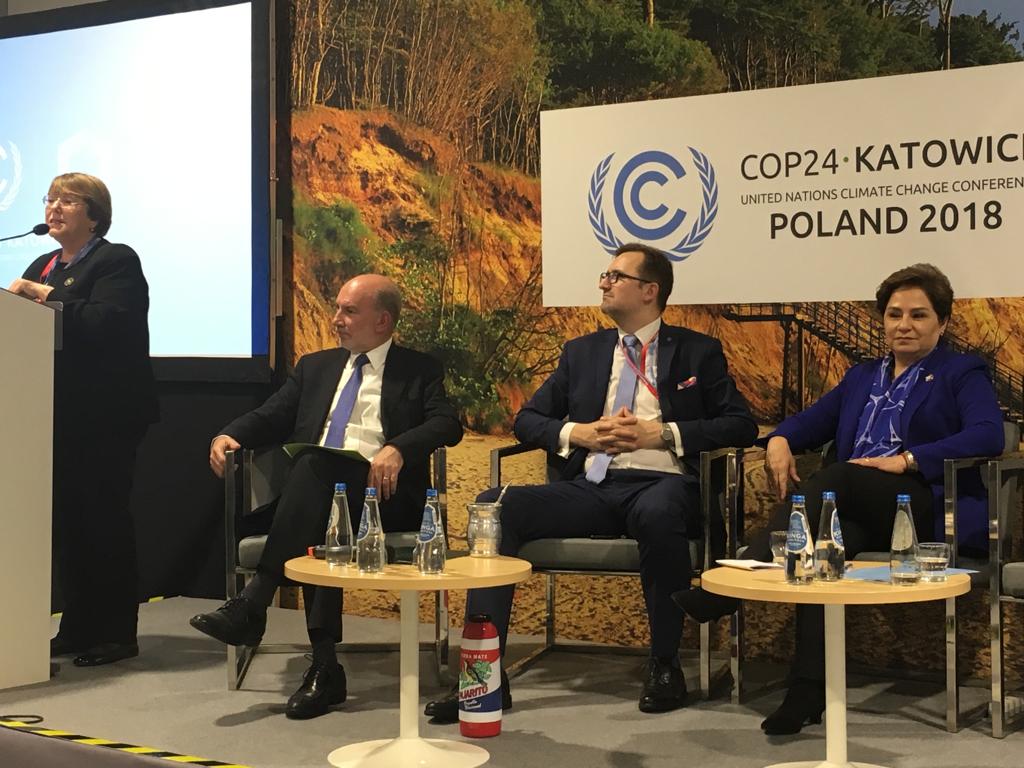The United Nations High Commissioner for Human Rights, Ms. Michelle Bachelet, visited COP 24 on the occasion of the 70th anniversary of the Universal Declaration of Human Rights which was celebrated on the 10 December. Attending High Level event on 12 December, organised by the Office of the High Commissioner for Human Rights, UNFCCC secretariat and the Polish Presidency of the COP provided a critical opportunity for States to reflect on their human rights obligations with respect to climate change.
The event highlighted the human dimensions of climate change and climate action, with a focus on concrete examples of how integrating rights in climate policies can help shape more effective long-term climate action that benefits all persons, particularly the most vulnerable.
In her opening address the High Commissioner reminded participants that the Paris Agreement places an ‘emphasis on putting human rights at the front and centre of climate change discussions strongly reinforces the need for States, businesses and all other actors to step up their climate action.’ She reflected that the ‘Steps taken here in Katowice to support a just transition, to enhance climate ambition, to operationalize the Local Communities and Indigenous Knowledge Platform, and to support implementation of the Paris Agreement will have lasting consequences for the effective enjoyment of the rights of current and future generations.’
Ambassador Luis Alfonso De Alba, UN SG Special Envoy for the 2019 Global Climate Summit, moderated a panel on human rights and climate action, recalling the steps taken at COP 21 to include human rights in the Paris Agreement. Panellists included Carlos Manuel Rodriguez, Minister of Environment, Costa Rica; Senator Tibon, Republic of the Marshall Islands; Samantha Smith, Director, Just Transition Centre.
Panellist Agnes Leina, Executive Director, Illaramatak Community Concerns, Kenya, explained how climate action that is not rights based is negatively affecting her community in Kenya and called for a Human Rights Focal Point in the UNFCCC to build the capacity of Parties to integrate human rights in climate action. Picking up on Agnes’ point, the High Commissioner expressed her support for a Human Rights Focal Point, drawing on the positive experience of the Gender Focal Point, and stressed that this was not something that she or Patricia Espinosa could decide, it needs to be proposed and supported by one or more Parties. She called on the Costa Rican Minister and other governments to give this leadership.
The following day Canada announced that it would create and fund an Indigenous Peoples’ Focal Point in the UNFCCC to support the Local Communities and Indigenous Peoples Platform. A similar approach is required now to establish a Human Rights Focal Point to support Parties to implement rights based climate action consistent with the Paris Agreement.


